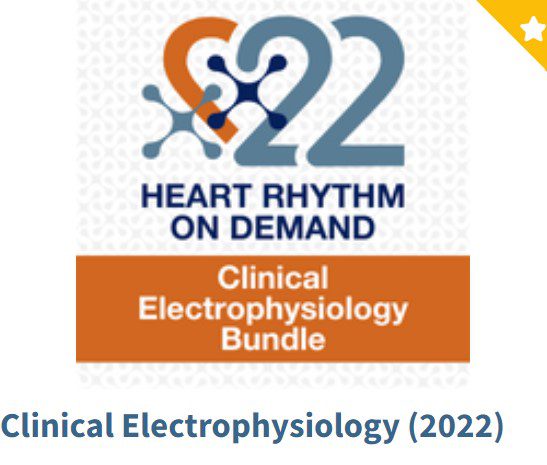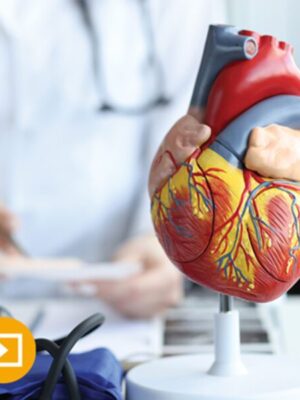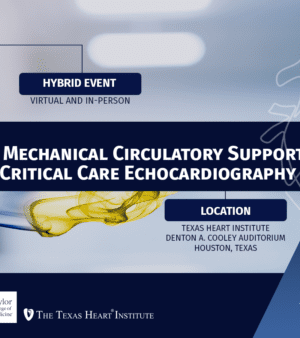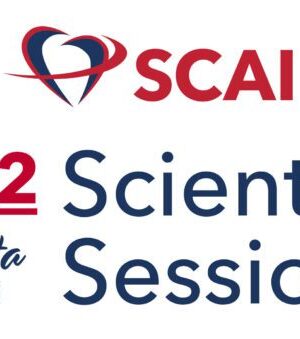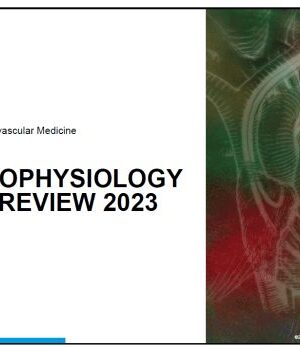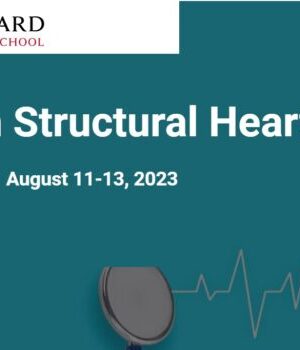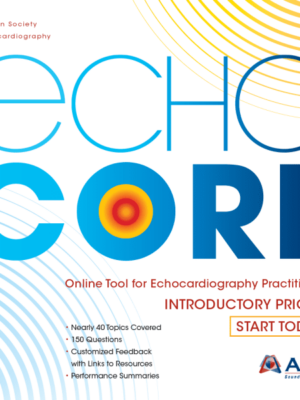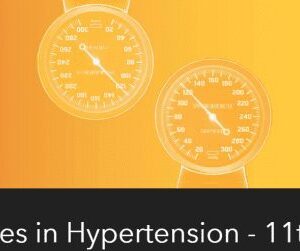No products in the cart.
Description
A curated bundle of Clinical Electrophysiology sessions presented at Heart Rhythm 2022. The education is presented in various learning formats, including Case-Based, Case-Based: Complicated Case, Tutorial, Core Curriculum, Abstracts, and more. Please note: this bundle does not include credit.
Content Overview
The Clinical Electrophysiology category contains the following sessions from Heart Rhythm 2022:
#HRS2022 YIA Competition – Clinical EP Finalists (EN-571)
(Under-)Utilization of Anticoagulation for AF (CE-539)
Addressing the Needs of a Diverse Arrhythmia Population (JS-460)
Arrhythmias in the Community: Risk factors, Detection and Management (CE-544)
Arrhythmias Related to Spirochetes, Parasites and Viruses (CE-300)
Arriving at a Better Understanding of COVID-19 and Arrhythmias (CE-541)
Best of Heart Rhythm Case Reports (CE-585) Best of Heart Rhythm O2 (CE-726)
Board Review for EP Fellows: SVT and VT (CE-314)
Can Genetics Help After a Young Sudden Cardiac Death? (JS-193)
Cardio-oncology: New Cancer Therapeutics and Arrhythmias (CE-299)
Challenges and Updates in Arrhythmic Mitral Valve Prolapse Syndrome (CE-326)
Challenging Cases for the Electrophysiologist (PC-578)
Complex SVT Discrimination by Pacing Maneuvers (CE-223)
Conduction System Pacing? LBBB Area Pacing and Beyond (JS-404)
Controversies in Arrhythmia Management in Athletes (CE-207)
Controversies in Atrial Fibrillation and Lifestyle Management (CE-286)
Cutting Edge Advances and Challenges in Managing Patients with Arrhythmogenic Cardiomyopathy (JS-453)
Debate: Pill in the Pocket DOAC Guided By Long-Term Continuous Monitoring as a Strategy For Stroke Prevention in AF Patients: Myth or a Possibility (CE-487)
Debate: What is the Role of LAA Occlusion for Stroke Prevention in Atrial Fibrillation? (CE-303)
Does Sex Matter? (CE-507)
Early AF Treatment: Prime Time or Hold the Horses (JS-445)
Epicardial Mapping and Ablation in 2022 – State of the Art (JS-458)
Genotype-First Arrhythmia Risk Prediction for Arrhythmogenic Cardiomyopathy (ACM) – What Have We Achieved and Where are We Going? (JS-174)
Getting an Eye on the Target Before the Ablation of SVT (CE-542)
Global Arrhythmia Education and Continuous Quality Improvement (CQI) – It Takes a Planet, not a Village (JS-452)
Heart Rhythm Journal Presents: New Advances in Managing Cardiac Arrhythmias (CE-584)
How to Conquer the Difficult Procedure (CE-315)
How to Optimize Care for AF Patients in the Preablation Period (JS-451)
Inside Out: The Left Ventricle (CE-310)
Introduction of the New HRS Expert Consensus Statement on the Management of Arrhythmias During Pregnancy: A Case-Based Discussion of Recommendations (CE-342)
Investigation of Decedents with Sudden Unexplained Death and Patients with Sudden Cardiac Arrest and of Their Families (JS-285)
Late-Breaking Clinical Trials: Clinical Innovations (LB-734)
Left Atrial Appendage Occlusion: Trials and Tribulations (CE-538)
Localization Insights from the Electrocardiogram (JS-459)
Looking Forward: What Ongoing Clinical Trials Could Teach Us (CA-509)
Making Genomics Equitable for All Patients with Heritable Cardiovascular Disease (JS-146) Management of the Asymptomatic Patient with a High Burden of PVCs (CE-307)
Managing Arrhythmic Risk: New Technologies and Techniques (CE-343)
New trials in VT management (CE-540) New Uses for Old Drugs (CE-432)
Novel Arrhythmia Insights and Mapping Techniques (CE-520)
Novel Mapping Approaches for Atrial Fibrillation (CE-100)
Opioids and Arrhythmia Risk (JS-426)
Optimal and Personalized Management of Atrial Fibrillation (JS-434)
Peri-TAVR Conduction Blocks: To Pace or Not to Pace (CE-302)
Pre-Excitation . . . and: Understanding Associated Conditions (CE-486)
Presenting the 2022 HRS Expert Consensus Statement on Evaluation and Management of Arrhythmic Risk in Neuromuscular Disorders: Development, Rationale, and Application (CE-410)
Racial and Ethnic Disparities in Clinical Electrophysiology (CE-124)
Radiation Safety For Eps (CE-485)
Sex Differences in Cardiac Arrhythmias (CE-245)
SVTs Mediated by Variant Accessory Pathways (CE-169)
The Early the Better: Afib Detection and Stroke (CE-543)
Translating Genetics to Optimize Arrhythmia Care (JS-338)
Understanding and manipulating the autonomic nervous system (CE-521)
Update on Dysautonomic Syndromes: Pacing, Neuroablation and COVID (CE-346)
Ventricular Tachycardia Management in Arrhythmic Syndromes (CE-175)
Ventricular Tachycardia: Prediction, Outcomes, and Treatment (CE-522)
Learning Objectives
After watching a reasonable amount of Clinical Electrophysiology (Heart Rhythm 2022), the learner should be able to:
Identify and analyze the latest scientific advances and innovations in the field of heart rhythm disorders.
Select appropriate, evidence-directed pharmacological and non-pharmacological therapies to achieve optimal outcomes for patients with heart rhythm disorders.
Recognize alternative perspectives regarding areas of controversy for which scientific evidence is insufficient, controversial, inconclusive, or confusing.
Utilize quality improvement measures, methods, and tools to foster systems-based improvements in heart rhythm care, outcome, and value.
Analyze and improve processes related to inter-professional teams, care coordination, patient engagement, and communication to optimize the delivery of patient- and family-centered care.
Assess the impact of regulatory and institutional policies, and societal and cultural norms, on safety, timeliness, equity (including diversity and inclusion), effectiveness, efficiency, patient-centered care, and value.
Utilize improved communication methods to engage with patients and caregivers for increased shared decision-making in the treatment of heart rhythm disorders
Evaluate the latest technology available for both professionals and consumers in the field of heart rhythm disorders.
Recognize disparities in health care and describe strategies to reduce these disparities in patient care.
Utilize shared decision-making resources in discussing monitoring and treatment of patients with heart rhythm disorders.
Describe the latest cardiac device advisories and/or recalls and explain how to share this information with patients and caregivers.
Explain the current and future trends in digital health that will impact the treatment of heart rhythm disorders.
Describe best practices for managing a device clinic, an AF center, and/or a multidisciplinary electrophysiology practice

